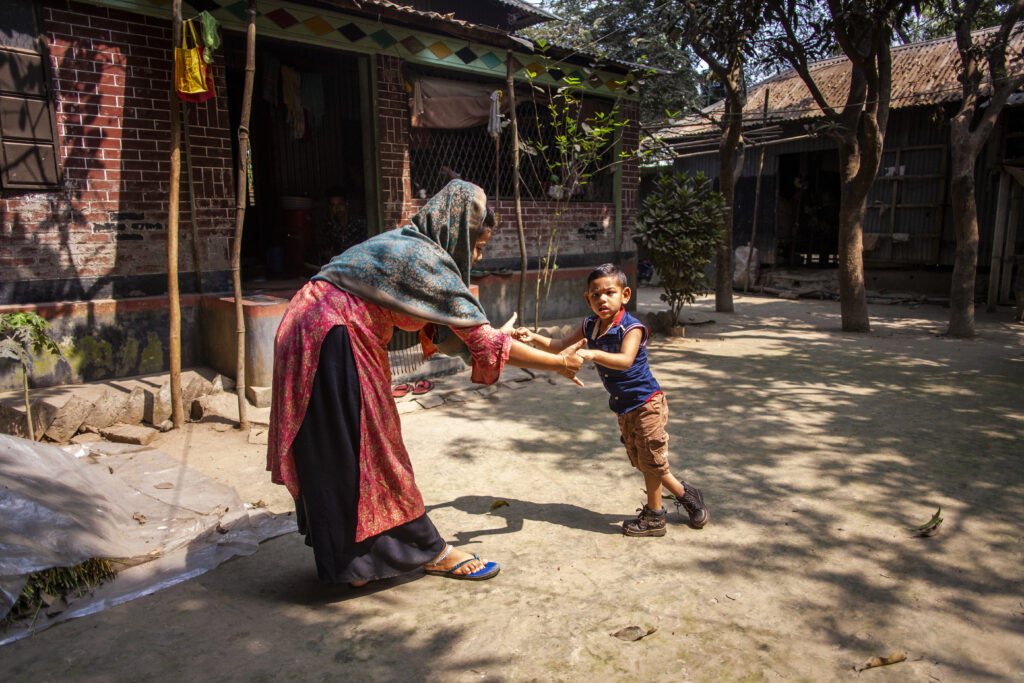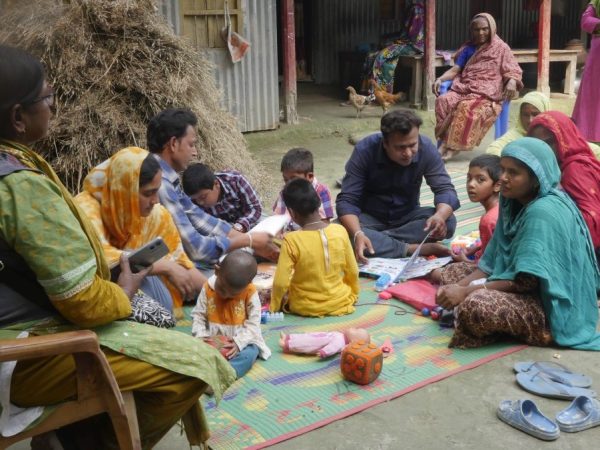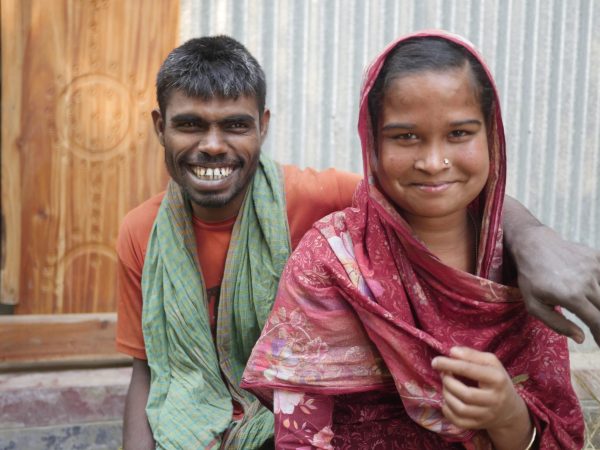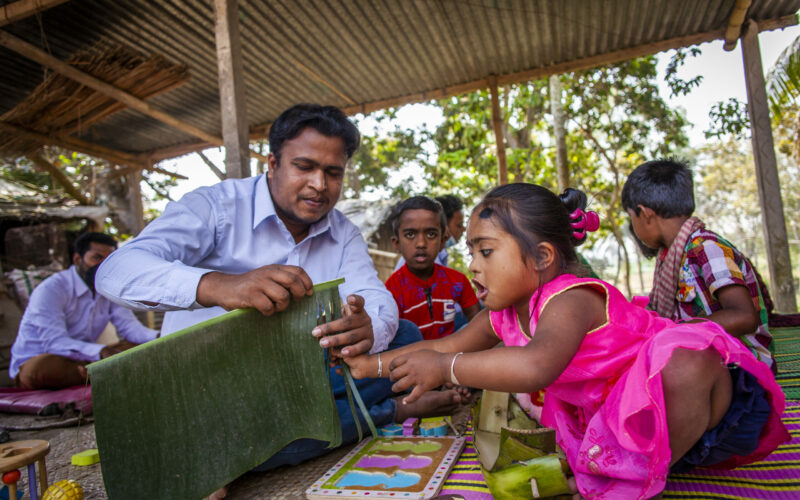News Niketan is building an ecosystem for special children
A young housewife, Shurma Akhter’s son was born a seemingly healthy child. However, as a toddler when he would not sit or talk properly, she took him to a local pediatrician who assured her that the child would be alright with time.
“He kept saying it was nothing and my baby would eventually be fine. But I knew he had some problems. I heard about Niketan Foundation from a neighbour and then took him there,” Shurma shared with The Business Standard. Her son is now six years old and has been studying at the Niketan Foundation for four years. Not only has he learned to walk, he can also communicate with his family members in small sentences.
Since 1998, Niketan Foundation has been working in Bangladesh with children and youngsters with intellectual and complex disabilities. It offers care packages which includes things such as early intervention, appropriate education, physiotherapy and vocational training. This means as the children grow older, they also learn how to lead an independent life. Additionally, the organisation offers practical support at home, healthy meals, and travel expenses. Most of its projects are within the Shivalaya, Ghior, and Daulatpur Upazila in Manikganj District. One of their projects takes place in a slum in the capital’s Badda area.
“I know my son is different from other children, and that he needs special care and attention. He could not even sit properly and now he can do little things all by himself. He is even studying a bit at the foundation’s school,” Shurma voiced her happiness about her son’s progress.
Disability in Bangladesh
Despite there being 17-25 million disabled people in the country, their infrastructural or informational access is hardly considered. There are only a handful of educational institutions for special children. Employment opportunities are also extremely low for persons with disabilities. The Business Standard reached out to Mohammad Nizam Uddin, project manager, durable care and education project, DRRA and a physiotherapist, who discussed with us how Niketan Foundation and DRRA has been working together to ensure education and rights for disabled children.
“We work with all 12 kinds of disabled people. Although DRRA and Niketan Foundation started with only 10 children, now there are more than 200 children, 40 teachers, and nearly 100 community volunteers,” he said.
Niketan approach
The students at Niketan Foundation are introduced to special education but there are no grades like formal schools. Rather, there are three levels of the education based on age groups: Early childhood education (up to five years of age), special education (five to 12 years of age) and livelihood education (12 years onwards).
Every year, some of these children, those who have sufficient progress, are shifted to mainstream education. “We always target for some of our children to study in mainstream schools. Those who cannot, through our livelihood education, we try to teach them social and cognitive skills – how to do daily chores, how to communicate with people, money management etc,” Nizam explained.
The target is also to ensure that these children are gradually able to blend within the mainstream and attain proper skills to do so. Some of them are also connected to different organisations for jobs.
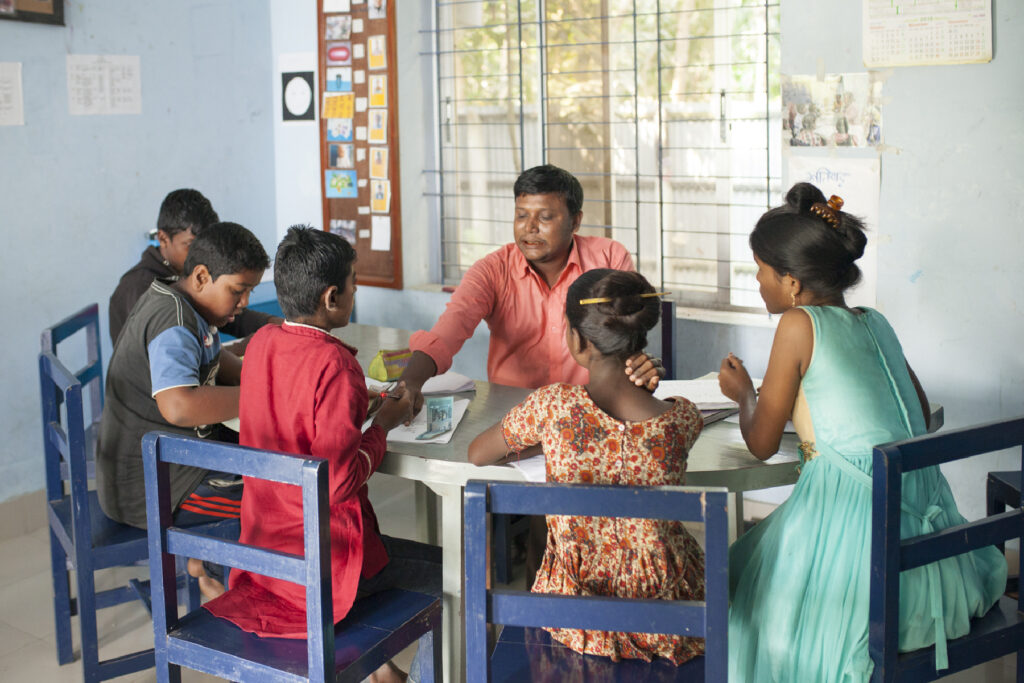
Rubel – a sucsess story
Nizam shared with us the story of one of their old students, Rubel. “He is from Ghior, Manikganj. He would take physiotherapy from us and he had significant improvement. He also received special education from us and got admitted to our residential training centre. Rubel took training on how to run a shop and now he runs his own near his house. Many of our boys and girls are now established in government jobs despite having disabilities,” he elaborated.
Pandemic
When the pandemic started last year, DRRA was worried about continuing its programmes, but it created an adaptive plan through which it provides online education and other services to the children. At the same time, video content was created to raise awareness among the parents or family members.
Nizam said, “Mobile phones were the only ways for us to ensure that the children and their guardians could keep up with lessons and therapies. Our teachers take online classes and we made short videos for the parents and send them to their phones. We send the mothers a structured, daily schedule for them to follow.”
Before the children at Niketan Foundation were provided free meals but not that it is closed, more than 100 mothers are sent money every month. Nearly 65 families in Dhaka have also been provided financial support.
Almost 90% of children under the foundation receive disability allowance, Nizam informed us.
Although the children are provided education and training for free, if parents want to buy any device from the organisation, they have to pay 20% of the price. This amount, although small, is used to help the poorer children and their families.
Niketan Foundation has various training modules for the parents as well. For example, parents of children with speech and hearing disabilities are taught sign language.
Some of the children have trouble eating, so their parents are taught how to feed them properly. Similarly, reflux training is provided to parents of children with cerebral palsy. The parents are also instructed on how to use walkers etc.
Involvement of parents
“While working with the children, we saw that the mothers are more present in their lives than the fathers. We tried to utilise the time they wait while the children are in class or training. However, we try to invite both parents to our regular parents-teachers meeting,” said Nizam Uddin. There is a group named ‘Bangla Maa’ consisting of 33 mothers who make jute handicrafts during the time their children study or receive training. These products are sent to the Netherlands.
During the post-pandemic period, Niketan Foundation wants to work on raising Covid-19 awareness among the parents and strengthen their hygiene practices. The teachers will also be included in the process.
As a father of a young child himself, Nizam Uddin believes children, disabled or not, should be kept away from all the negativities surrounding the pandemic. “I do not let my son watch the news all the time, and I encourage him to play or remain active, even if he is indoors all the time. I would suggest parents of disabled children also try to keep them as active as possible. It is also important for the mothers and fathers to not be anxious and remain strong-willed.” he said.
by: Promila Kanya, The Business Standard

